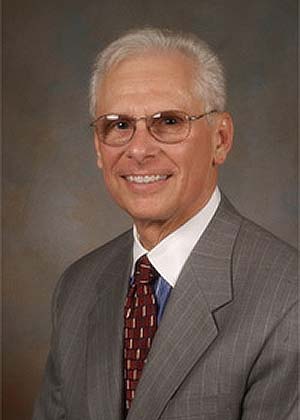About
The Department of Environmental Engineering and Earth Sciences offers three undergraduate degrees, plus minors in Sustainability, Geology, Environmental Science and Policy, and Nuclear Engineering. At the graduate level, we offer three M.S. degrees and two Ph.D. degrees. Through our M.S. in Environmental Engineering and Science, students can specialize in Health Physics. We prepare students to be leaders in a diverse set of disciplines pertaining to protecting public health and creating a healthier, more sustainable planet.
The School of Civil and Environmental Engineering and Earth Sciences is laser-focused on the infrastructure and environmental issues that directly impact how we build, work and develop the quality of our planet. Our goal is to create new knowledge in the fields of Civil Engineering, Environmental Engineering and Earth Sciences and prepare the next generation of scholars, innovators, and entrepreneurs.
Career Opportunities
Clemson University has consistently been ranked among the top public institutions by U.S. News & World Report. Our growing national recognition means additional career opportunities across campus, from teaching to research.
Job PostingsEvents
The thread that runs through our diversity of programs is a dedication to excellence in teaching and research on improving environmental quality through engineering and science. The department regularly publishes a newsletter, hosts seminars, and organizes conferences. Find out more about departmental activities on our News & Events page.
Remembrance
 The Clemson University community is remembering one of its own, Dean Emeritus Thomas M. Keinath, following his death on March 15 at age 83, as an esteemed leader, caring mentor, exemplary scholar and gentleman to the core. To honor his many enduring contributions, there will be a celebration of his life on May 18, 2024, at the Madren Center Grand Ballroom, from 1:30 to 4:30 pm. You are welcome to join us as we reminisce about the many ways that Dr. Keinath impacted our lives.
The Clemson University community is remembering one of its own, Dean Emeritus Thomas M. Keinath, following his death on March 15 at age 83, as an esteemed leader, caring mentor, exemplary scholar and gentleman to the core. To honor his many enduring contributions, there will be a celebration of his life on May 18, 2024, at the Madren Center Grand Ballroom, from 1:30 to 4:30 pm. You are welcome to join us as we reminisce about the many ways that Dr. Keinath impacted our lives.
When: May 18, 2024
Where: Madren Center - 1:30 to 4:30 pm
EEES in the News
Global Impact

Grand Challenges
Things vital to life on Earth are clean water and clean air. At Clemson, you have an opportunity to study and research biofuels, bioactive molecules and biomaterials in green-processing technologies, among many others. Or you can design the next sustainable community through stormwater retention and ecologically sound food and energy crop production.
We leverage our expertise in Environmental Engineering and Earth Sciences to pursue innovative research in two overarching Grand Challenges defining the future of engineering – infrastructure and the environment. From aquifer systems to biofuel production, our cross-disciplinary curriculum and service-learning allow our graduates to be global citizens that understand societal needs.
Our ResearchBeyond the Classroom
Career Outlook
Our undergraduate degree program for Environmental Engineering offers a core curriculum that emphasizes wastewater treatment, air pollution control, sustainability and risk assessment. Biosystems Engineering is a focus of almost any field in the modern world. The discipline’s sustainable designs for energy, water and food are paramount when shortages of all three are not only possible but almost inevitable. Geology is a broad field, and Clemson University embraces the flexibility that comes with that. As an applied science, geology combines concepts from chemistry, physics and biology with other areas in studying the Earth.
- Federal and state governments
- Water utilities and resources
- Engineering and environmental consulting firms
- Manufacturing
- International industries
- Research groups
- Nonprofit agencies
- Food systems and processing
- Bioplastics
- Infrastructure design
- Alternative energy

Department Ranking
Environmental Engineering and Earth Sciences is ranked #21 by the U.S. News & World Report for Public Departments.
Professional Development
Clemson's Center for Career and Professional Development consistently rates high nationally for career services, internships, and co-op opportunities.
Career ServicesExpenditure
Research thrusts include environmental chemistry, environmental transport, hydrogeology, nuclear environmental engineering and science, process engineering, and sustainable systems.
Find Your Path

For biosystems engineering major Michael Smith, receiving a Fulbright scholarship is an opportunity to reconnect with the region where he spent the first years of his life in Kyiv, Ukraine. He remembers neighbors referring to the infamous Chornobyl nuclear disaster and its effects on their children’s health and friends warning them away from eating food out of the city’s Dnieper River. Those conversations led Smith to explore unequal health outcomes brought about by systemic issues, environmental pollution and climate change by turning waste streams into product streams.
Majors Offered
Our undergraduate and graduate programs are nationally recognized for their quality, with more than 1000 people earning academic degrees from the Department of Environmental Engineering and Earth Sciences.
For Graduate Applicants, There Is No Application Fee.
FACULTY EXCELLENCE
The department has over 30 faculty members and 50 adjunct and joint faculty. Our program is the only one in the nation with three faculty members (Linvil G. Rich, Thomas M. Keinath, and C.P. Leslie Grady. Jr) honored with the prestigious Founders Award by the American Association of Environmental Engineering and Science Professors.

Toxic chemicals that have been used in a wide variety of commercial products and refuse to break down in the environment (PFAS) have been linked to health problems that could be treated with a technology that Ezra Cates is advancing at Clemson University. Cates and his students are studying how photocatalysis could remove a group of toxic substances from water, a task he said is becoming more urgent.






